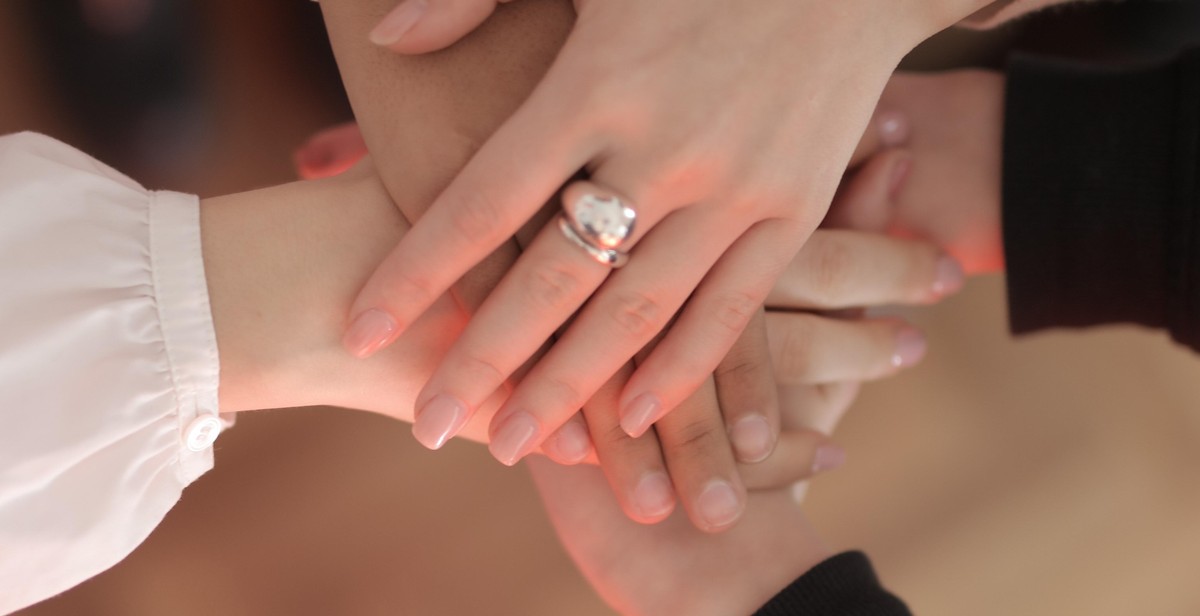The Love Dictator: How to Deal with a Controlling Partner
Dealing with a controlling partner is never easy. It can be emotionally draining, mentally exhausting, and even physically harmful in some cases. As someone who has experienced a controlling partner firsthand, I know how difficult it can be to navigate this type of relationship.
When I first met my ex-partner, I was swept off my feet. They were charming, attentive, and seemed to care about me deeply. However, as our relationship progressed, I began to notice certain patterns of behavior that made me feel uncomfortable. My partner would constantly check in on me, demand to know where I was at all times, and even dictate what I could wear or who I could see.
At first, I tried to brush it off as them just being protective or caring. But as time went on, their behavior became more and more controlling. I felt like I couldn’t make any decisions for myself without their approval, and it was suffocating.
It took me a long time to realize that I was in a toxic and unhealthy relationship. But once I did, I knew I had to take action. In this article, I’ll be sharing some of the strategies and tips that helped me deal with a controlling partner, and hopefully, they can help you too.
What is a Controlling Partner?
A controlling partner is someone who tries to dictate your every move and decision in a relationship. They may use various tactics to manipulate and dominate you, making you feel powerless and trapped. This type of behavior is not healthy and can lead to emotional, mental, and even physical abuse.
Signs of a Controlling Partner
There are many signs that you are in a relationship with a controlling partner. These can include:
- Jealousy and possessiveness
- Constant criticism and belittling
- Isolation from friends and family
- Monitoring your every move, including your phone and social media activity
- Blaming you for their problems or mistakes
- Threatening or intimidating behavior
If you notice any of these signs, it’s important to seek help and support. You deserve to be in a healthy and loving relationship.
Types of Control
Controlling partners can use various types of control to maintain their power over you. These can include:
| Type of Control | Description |
|---|---|
| Emotional Control | Manipulating your emotions to make you feel guilty, ashamed, or afraid. |
| Financial Control | Controlling your finances and limiting your access to money. |
| Physical Control | Using physical force or threats of violence to control you. |
| Sexual Control | Using sex as a tool for control and coercion. |
Understanding the types of control can help you identify the behavior and take steps to protect yourself.
Why Do People Become Controlling?
Controlling behavior in a relationship can be a source of great distress for the partner on the receiving end. However, it is important to understand that controlling behavior is not always a conscious choice. There are several underlying factors that can contribute to a person becoming controlling.
Insecurity and Fear
One of the main reasons why people become controlling is due to their own insecurities and fears. They may feel a lack of control in other areas of their life, such as work or personal relationships, and seek to exert control in their romantic relationships as a way to compensate. They may also fear losing their partner and believe that controlling behavior will prevent this from happening.
Past Trauma and Experiences
Another reason why people become controlling is due to past trauma and experiences. They may have experienced a loss of control in their childhood or previous relationships, leading them to believe that controlling behavior is necessary for safety and security. Additionally, they may have witnessed controlling behavior in their own family or social environment, leading them to believe that it is a normal way to behave in a relationship.
It is important to note that while these factors may contribute to controlling behavior, they do not excuse it. It is important for those exhibiting controlling behavior to seek help and work through their underlying issues in a healthy and constructive manner.

The Negative Effects of a Controlling Relationship
Being in a controlling relationship can have several negative effects on a person’s emotional, physical, and social well-being. Here are some of the most common negative effects of being in a controlling relationship:
Emotional Impact
One of the most significant negative effects of a controlling relationship is the emotional impact it can have on a person. Being constantly criticized, judged, or belittled can lead to feelings of low self-esteem and self-worth. Over time, this can lead to anxiety, depression, and other mental health issues.
Moreover, when someone is in a controlling relationship, they may feel like they cannot express their emotions or feelings freely. They may fear that their partner will judge or criticize them, which can lead to bottling up emotions and feeling isolated.
Physical Health
Being in a controlling relationship can also have physical health consequences. Stress is a common side effect of being in a controlling relationship, which can lead to headaches, migraines, digestive issues, and other physical symptoms.
Moreover, controlling partners may try to limit their partner’s autonomy, which can lead to neglect of their physical health. For example, a partner may prevent their significant other from going to the gym or eating healthy, leading to weight gain and other health problems.
Social Isolation
Controlling partners may try to isolate their significant other from friends and family, which can lead to social isolation. This can have several negative effects on a person’s mental health, including feelings of loneliness and depression.
Moreover, controlling partners may try to limit their significant other’s social interactions or prevent them from pursuing their interests and hobbies, which can further exacerbate feelings of isolation and loneliness.
In conclusion, being in a controlling relationship can have several negative effects on a person’s emotional, physical, and social well-being. It is essential to recognize these effects and take steps to address them to maintain a healthy and fulfilling relationship.

How to Deal with a Controlling Partner
Dealing with a controlling partner can be a challenging and emotionally draining experience. It can make you feel suffocated, trapped, and helpless. However, there are ways to address and overcome this issue. Here are some tips:
Recognize and Acknowledge the Behavior
The first step to dealing with a controlling partner is to recognize and acknowledge the behavior. Controlling behavior can manifest in many ways, such as jealousy, possessiveness, manipulation, and isolation. It is important to understand that this behavior is not normal or healthy in a relationship. Denying or ignoring the behavior will only make it worse.
Set Boundaries and Communicate
The next step is to set boundaries and communicate your needs and feelings to your partner. Let them know how their behavior is affecting you and what you are not comfortable with. Be assertive, but also respectful and calm. It is important to stand firm on your boundaries and not let your partner manipulate or guilt-trip you into giving in.
- Identify your boundaries
- Communicate your boundaries clearly and calmly
- Be assertive and stand firm on your boundaries
Seek Professional Help
If your partner’s controlling behavior is persistent and causing significant distress in your life, it may be time to seek professional help. A therapist or counselor can help you navigate the situation and develop strategies to cope with the behavior. They can also provide support and guidance in deciding whether to stay in the relationship or leave.
Dealing with a controlling partner is not easy, but with the right mindset and support, you can overcome it. Remember to prioritize your own well-being and happiness, and never compromise your values and boundaries for the sake of a relationship.
Leaving a Controlling Relationship
If you have decided to leave a controlling partner, it is important to prioritize your safety above all else. Here are some tips to help you leave safely and effectively:
Safety First
Before leaving, make sure you have a safe place to go. This could mean staying with family or friends, or finding a shelter or safe house. If you fear for your safety, consider getting a restraining order or seeking legal assistance.
Have a Plan
Leaving a controlling relationship can be difficult, so it is important to have a plan. Make a list of what you need to do before leaving, such as gathering important documents, packing essentials, and arranging transportation. Keep this plan private and only share it with trusted individuals.
Seek Support
Leaving a controlling partner can be emotionally challenging, so it is important to seek support from friends, family, or a therapist. Consider joining a support group or seeking counseling to help you cope with the aftermath of leaving.
Remember, leaving a controlling relationship is a brave and empowering decision. Prioritize your safety, have a plan, and seek support to make the transition as smooth as possible.
Conclusion
Dealing with a controlling partner can be a challenging and emotionally draining experience. It’s important to recognize the signs of a controlling relationship and take action to protect yourself and your well-being.
You Deserve Better
Remember that you deserve to be in a healthy and supportive relationship. A controlling partner can make you feel trapped and powerless, but you have the power to take control of your situation and make positive changes in your life.
It’s important to set boundaries and communicate your needs clearly with your partner. If they are unwilling to respect your boundaries or change their behavior, it may be time to consider ending the relationship.
Seek Support
Dealing with a controlling partner can be isolating and make you feel alone. Seek support from friends, family, or a therapist who can provide a safe and non-judgmental space to talk about your experiences and emotions.
Remember that you are not alone and there is help available. You deserve to be in a loving and respectful relationship, and taking steps to remove yourself from a controlling partner is an act of self-care and self-love.
| Love yourself enough to set boundaries. | Your time and energy are precious. You get to choose how you use it. You teach people how to treat you by deciding what you will and won’t accept. |
